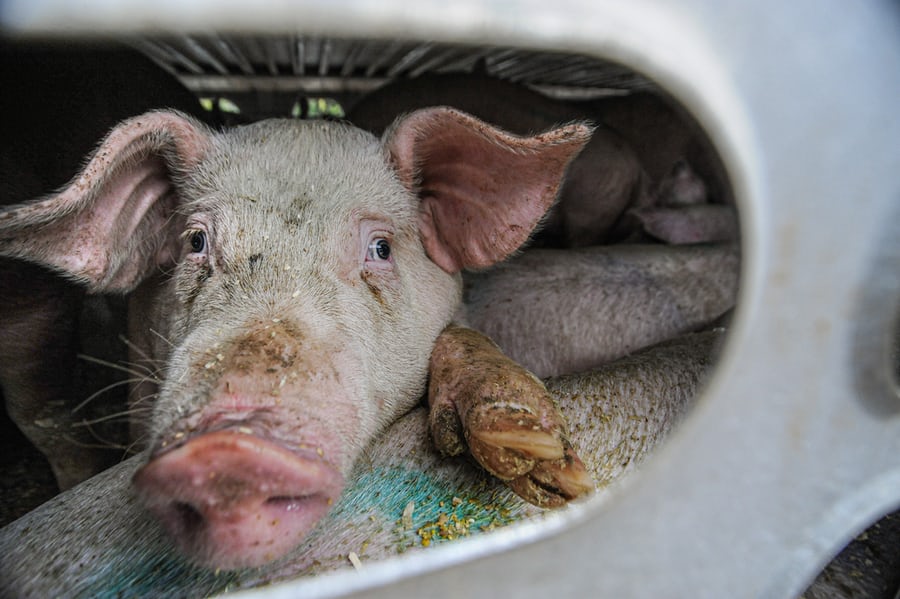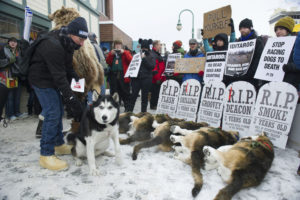When eating animals is not a necessity, can a person be an animal lover, and still eat meat?
Earthling Ed is a popular Vegan, and animal rights activist who does terrific work and lives in the UK. He recently shared a post that opened with the following statement: “The new coronavirus pandemic would not have started if we didn’t farm, exploit and eat animals.” The USA Today and tabloid media in the UK immediately tried to discredit him, and accused him of posting partly false information. As a result, they did succeed to some degree in the eyes of social media, as his instagram post was censored (which was almost funny coming from the frequently & legitimately discredited USA Today, but that is another discussion). Who gets to be the arbiter of deciding what is allowable, and what isn’t on social media? Unfortunately, Earthling Ed’s important message will not reach nearly as many people as a result of this kind of censorship. But what is really behind the censoring of Ed’s statement, and message? Could it be in part, cognitive dissonance? Cognitive dissonance is the discomfort that is felt by a person who holds conflicting ideas, beliefs, or values at the same time. We live in a meat eating culture, and many people are uncomfortable with anyone who questions, or presents a challenge to their long held beliefs/myths surrounding themselves, and animal product consumption (I love animals they may say, and eating certain types of animals is normal).
I don’t have the same reach as Earthling Ed (I wish), but I was in a similar situation recently. I was going to teach an evidence based online class on the connections between diet, animal welfare, and the climate crisis, but I received tremendous pushback from the hiring company after I submitted a lesson plan. Why? They said that my information was biased, and not objective, despite the overwhelming data and evidence that was provided. Could their reaction be a result of cognitive dissonance as well, or what others sometimes refer to as the meat paradox?
“If you want to know where you would have stood on slavery before the Civil War, don’t look at where you stand on slavery today. Look at where you stand on animal rights.” – Paul Watson
Can a person be an animal lover, yet still eat meat? In her extraordinary book, “Why we Love Dogs, Eat Pigs, and Wear Cows”, Dr. Melanie Joy outlined a few of the many defense mechanisms humans use to block awareness towards those species who are classified as edible.
Here are a few excerpts:
1. Justification: learning to believe that the myths of meat, eggs and dairy are the facts of meat, eggs and dairy. Often, vegan advocates assume that a person’s defensiveness is the result of selfishness or apathy, when in fact it is much more likely the result of systematic and intensive social conditioning…There is a vast mythology surrounding meat, but all the myths are in one way or another related to what I refer to as the Three Ns of Justification: eating meat is normal, natural, and necessary. The Three Ns have been invoked to justify all exploitative systems, from African slavery to the Nazi Holocaust. When an ideology is in its prime, these myths rarely come under scrutiny. However, when the system finally collapses, the Three Ns are recognized as ludicrous.
2. Abstraction: recognizing dogs/cats as pets and individuals then looking at farmed animals as lacking in individuality or personality of their own. Even though pigs are smarter than dogs, a pig is a pig and all pigs are the same.
3. Denial: expressed through invisibility; denying that eating animals causes suffering. Animals remain conveniently out of sight and out of mind…Think about it: virtually every atrocity in the history of humankind was enabled by a populace that turned away from a reality that seemed too painful to face, while virtually every revolution for peace and justice has been made possibly by a group of people who chose to bear witness and demanded that others bear witness as well…The most effective way to distort reality is to deny it; if we tell ourselves there isn’t a problem, then we never have to worry about what to do about it. And the most effective way to deny a reality is to make it invisible.
Dr. Joy is a game changer, and she has coined the phrase “carnism” to explain the psychology behind our meat eating culture’s behavior & actions.
The excerpt below is from her website carnism.org:
Carnism is the invisible belief system, or ideology, that conditions people to eat certain animals. Carnism is essentially the opposite of veganism, as “carn” means “flesh” or “of the flesh” and “ism” refers to a belief system.
Because carnism is invisible, people rarely realize that eating animals is a choice, rather than a given. In meat-eating cultures around the world, people typically don’t think about why they eat certain animals but not others, or why they eat any animals at all.
But when eating animals is not a necessity, which is the case for many people in the world today, then it is a choice, and choices always stem from beliefs. As long as we remain unaware of how carnism impacts us, we will be unable to make our food choices freely, because without awareness, there is no free choice.
What’s really important to be aware of is that carnism conditions us to act against our core values. Most people’s core values include compassion or caring and justice or fairness. Most people would never support unnecessary and extensive harm to animals for absolutely no reason. Yet most people support carnism and they do this because basically they’ve been conditioned not to think, not to ask questions.
The bottom line? When eating animals is not a necessity, you can’t be an animal lover, and eat animals. Period. Dr. Martin Luther King, Jr., once said that “groups are more immoral than individuals”, and I believe that to be true, and a big reason why so many people continue to choose not to care (whether they know it or not). In other words, most people eat meat, because most people eat meat.
“None of us ask for fried chicken, pork chops, or ice cream in the delivery room. We were all born without preferences. Everything we think we like, we were taught to like.” – Milton Mills, MD
Incidentally, Coretta Scott King went vegan after her son, Dexter Scott King, convinced her that it was the next logical step to living a nonviolent lifestyle. Makes sense to me. 🙂
Click here for Dr. Joy’s masterful 18 minute presentation, called “The Secret Reason We Eat Meat”.
Click here for a thoughtful clip from Earthling Ed titled “Can you love animals and eat them?”
Click here to learn more about the “Meat Paradox”.
Click here for a lesson plan and to learn more from PETA about “Cognitive Dissonance”.
Click here to learn more about the plight of animals from the excellent film Earthlings.




